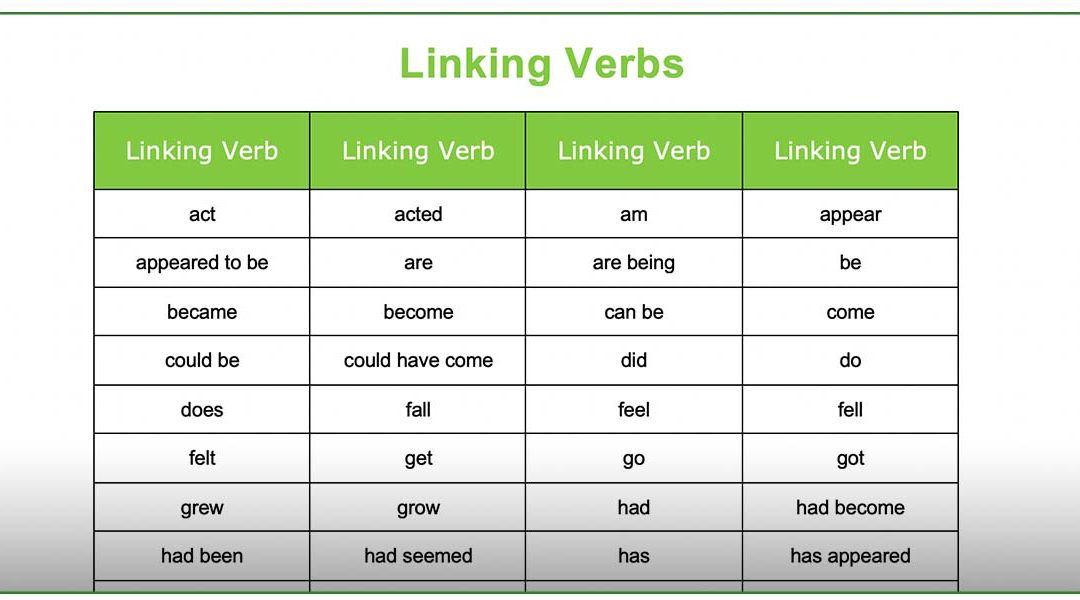Linking verbs definition
A linking verb functions as a connection between a subject and the rest of the sentence. Rather than serving to show action themselves, they “link” the subject by connecting it to further information, usually an adjective, noun, or pronoun that describes it. In other words, linking verbs re-identify or to describe the subject, linking it to a subject complement.
To help you understand, consider the following examples:
- Farah looks beautiful in that dress.
✏️ Here, “Farah” is the subject, “looks” represents the linking verb, and “beautiful (in that dress)” is the subject complement.
- The cat is hungry.
✏️ Here, “cat” is the subject, “is” represents the linking verb, and “hungry” is an adjective.
These verbs are not used to express an action but rather a condition or state of being. The most common linking verb is to be. However, here are many others, including all verbs related to the senses. These include is, am, are, was, were, be, been, being, seems, becomes, feels, and appears.
Here are some examples of helping verbs in sentences:
- My sister went to the Caribbean last year on vacation.
- Angela felt very tired after a long day at work.
- Mohammed appears upset about the outcome of the football match.
- She became suspicious when she noticed the lights were off.
- I feel happy after spending time with my grandmother.
- He is fond of Japanese food.
- The teacher seemed impressed by Rajeev’s poem recital.
- The cake she made tastes heavenly.
- They were ready to go on vacation after the long winter stuck indoors.
How to identify a linking verb
Sometimes it may be difficult to tell if a verb is a linking verb. However, you can always try replacing the verb with a form of “to be” as a simple test. You will know it is a linking verb if the sentence still makes sense and has almost the same meaning.
Consider the following examples:
- Elizabeth feels tired./ Elizabeth is tired.
✏️ These two sentences have the same meaning, so you know “feels” is a linking verb.
- Manchester United appears to be the winner of the football match./ Manchester United is the winner of the football match.
✏️ These two sentences have the same meaning, so you know “appears” is a linking verb.
List of common linking verbs:
| Linking Verb | Linking Verb | Linking Verb | Linking Verb |
|---|---|---|---|
| act | acted | am | appear |
| appeared to be | are | are being | be |
| became | become | can be | come |
| could be | could have come | did | do |
| does | fall | feel | fell |
| felt | get | go | got |
| grew | grow | had | had become |
| had been | had seemed | has | has appeared |
| has become | has been | has seemed | have |
| have appeared | have become | have been | have seemed |
| indicate | is | is being | is getting |
| keep | look | looked | may be |
| might be | might have been | must | prove |
| remain | remained | seem | seemed |
| seeming | seems | shall be | shall have been |
| should be | should have appeared | should have been | smell |
| sound | stay | stayed | taste |
| tasted | turn | was | was being |
| wax | waxed | went | were |
| will be | will become | will have become | will have been |


